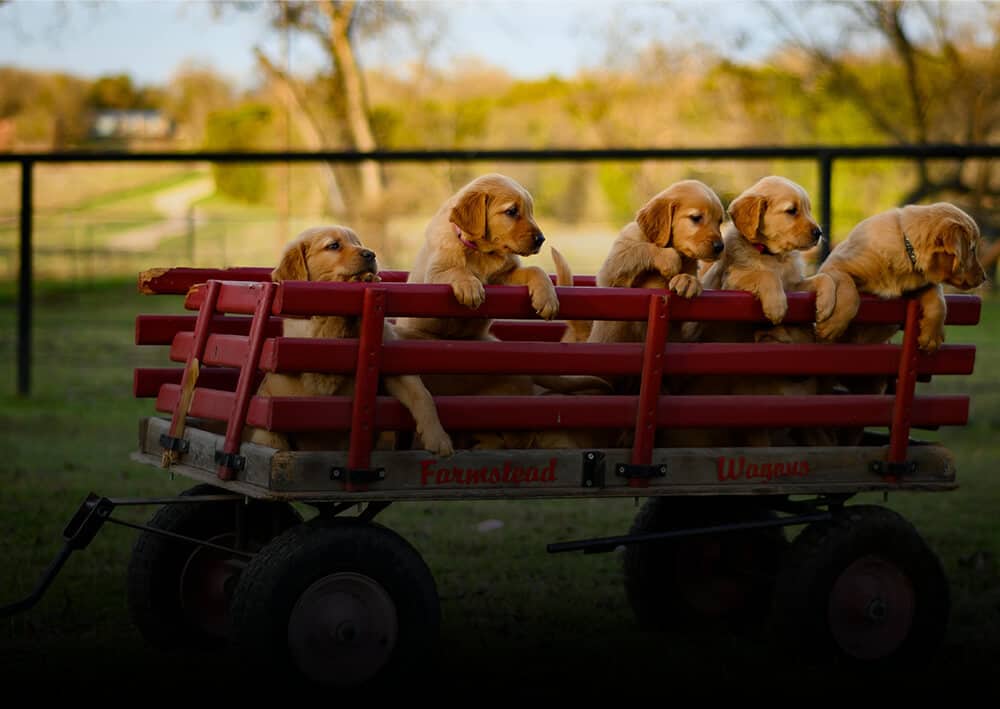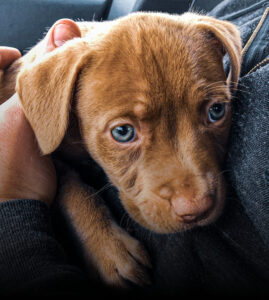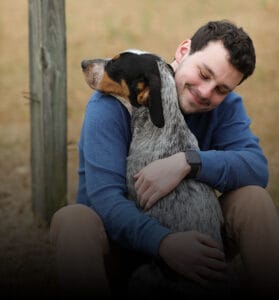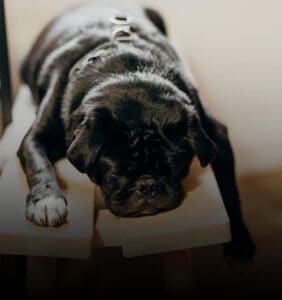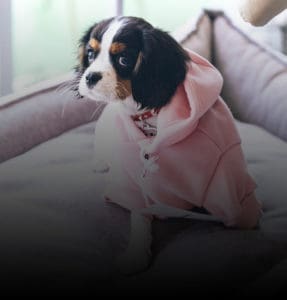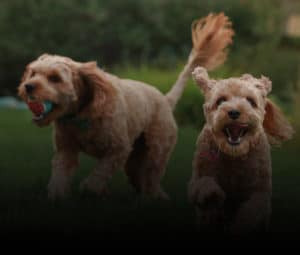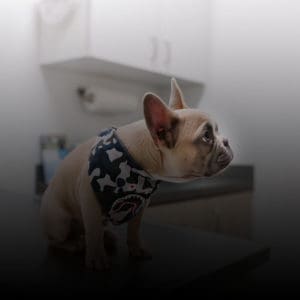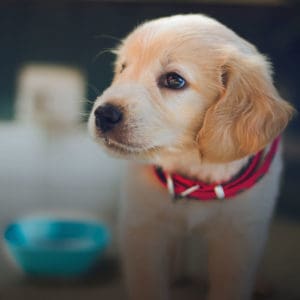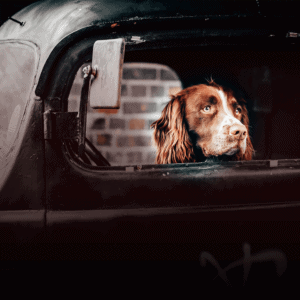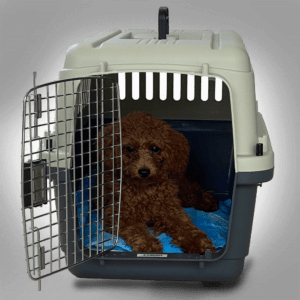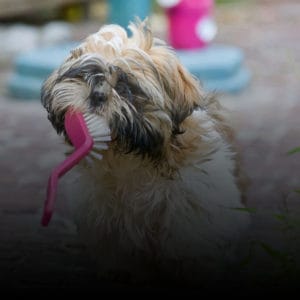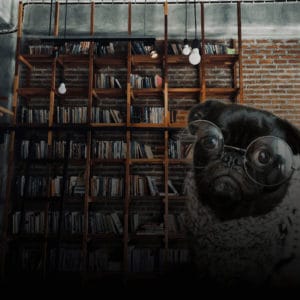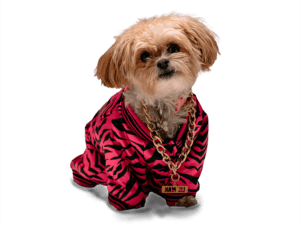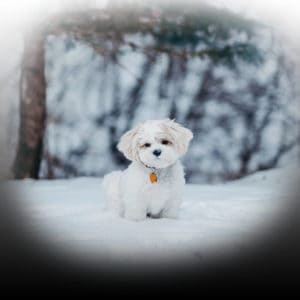Why it’s important to puppy proof your home?
Puppies are fun and curious animals, but they can cause havoc in your home if you’re not careful.
While for humans our homes are relatively safe and we know what’s dangerous and what’s not. Puppies have no prior understanding of what is dangerous and what is not. So it is important that you prepare for their arrival ahead of time and puppy proof your home to keep them safe
To help prepare for the arrival of a new puppy, here are 12 ways to puppy proof your home.
Remove electrical cables
Puppies love to chew – especially on electrical cables running from a TV or reading lamp.
Not only is this frustrating for you, but it could also result in your puppy getting an electric shock.
To stop this from happening, keep electrical cables out of reach by hiding them behind furniture, running them around doorways or fixing them to the ground.
Alternatively, try using a cord protector, which is a plastic cover with a bitter taste. And make sure you have plenty of chew toys available to distract your little doggo.
Keep food out of reach
A lot of human food is not suitable for puppies. In fact, some can even be poisonous.
To keep your puppy safe, make sure human food is kept out of reach or in a container with a childproof lock.
Families should also avoid feeding a puppy any leftover food to reduce the risk of any adverse reactions.
However, if your pup does eat any harmful food, like chocolate or garlic, monitor for reactions and call a vet if needed.
Put medicines and cleaning supplies away
Puppies don’t know that eating aspirin can be dangerous for them, or that soap is not food.
Instead, it’s highly likely that your puppy will attempt to eat pain killers or cleaning supplies.
So, to safeguard your pup, a good approach is to store these products in a locked cupboard or on a high shelf.
Keep doors, windows and toilet seat closed
This tip is especially important if a puppy is not yet vaccinated and needs to be kept away from other animals.
Doors and windows should also be kept closed if your home is close to a busy road. Or if the garden has not been puppy proofed.
After all, the last thing you want is your puppy racing out of the front door towards traffic. Or escaping out of the yard to annoy the neighbours.
As for the toilet seat, puppies love to drink water out of the bowl, which isn’t very hygienic.
Plus, there is a risk that a small puppy could fall in and drown, so keep the lid down.
Use a baby gate
Most people don’t have time to watch their puppy 24/7.
Instead, try using a baby gate to separate parts of the house that are not puppy friendly, such as an office, a bedroom or a home gym.
Move houseplants
Houseplants provide puppies with another object that can be chewed.
While this can be a heart breaking moment for a proud house plant owner, it can actually be dangerous for your puppy as some houseplants are toxic for dogs.
Dangerous plants include:
- Peace Lily
- Aloe Vera
- Dumb Cane
- Jade Tree
To keep your pup safe, move houseplants onto high shelves or into a room where the puppy is not allowed.
Keep sharp objects out of reach
Sharp objects like knives, scissors, razors and tools should be tucked away in drawers and cupboards. This will stop your puppy from trying to play with them and getting injured.
The same applies to choking hazards, like batteries, jewellery, coins, paper clips and rubber bands.
Secure rubbish bins
When puppy proofing a home, don’t forget about the rubbish bins.
Dogs are often fascinated by bins, and they will happily dive in to find last night’s dinner scraps.
Not only could this cause an upset stomach, but your pup could end up eating something poisonous.
To stop this from happening, secure rubbish bins – either in the kitchen or outside – with childproof lids. Alternatively, try attaching bins to a wall so they can’t be pulled over.
Install a garden fence
For anyone with a garden or back yard, this is a must di tip to puppy proof your home.
Puppies like to run, play and explore and usually won’t stay within the boundaries of a garden unless there is a fence in the way.
Before installing a fence though, consider the breed of the dog and how big he or she will become in the future. If your pup will grow into a big dog, then you will need a big fence.
Designate a puppy area
When house training a puppy (toilet training), you will need to designate a puppy area – preferably in a garden.
As this space will become your pup’s toilet, it will hopefully stop your puppy from using your living room as loo.
But don’t forget to stock up on puppy pads in case there are a couple of overnight accidents during the training phase.
Don’t use pesticides in the garden
Dogs experience similar reactions to pesticides as humans, such as skin rash, eye irritation, nausea, vomiting and respiratory problems.
A recent study also showed dogs exposed to pesticides have a higher risk of developing cancer or suffering neurological damage. So avoid using them in your garden.
Keep the lawn trimmed
Ticks like to hide in long grass and burrow into the flesh of animals. This can lead to infection or illness if the tick is not removed and carefully treated.
This is why a simple way to reduce the likelihood of your puppy getting a tick in the first place is to keep the grass in your garden short.
Now you have all the tips to puppy proof your home.
Want to know more about taking care of a puppy? Explore our archive of puppy care articles.

